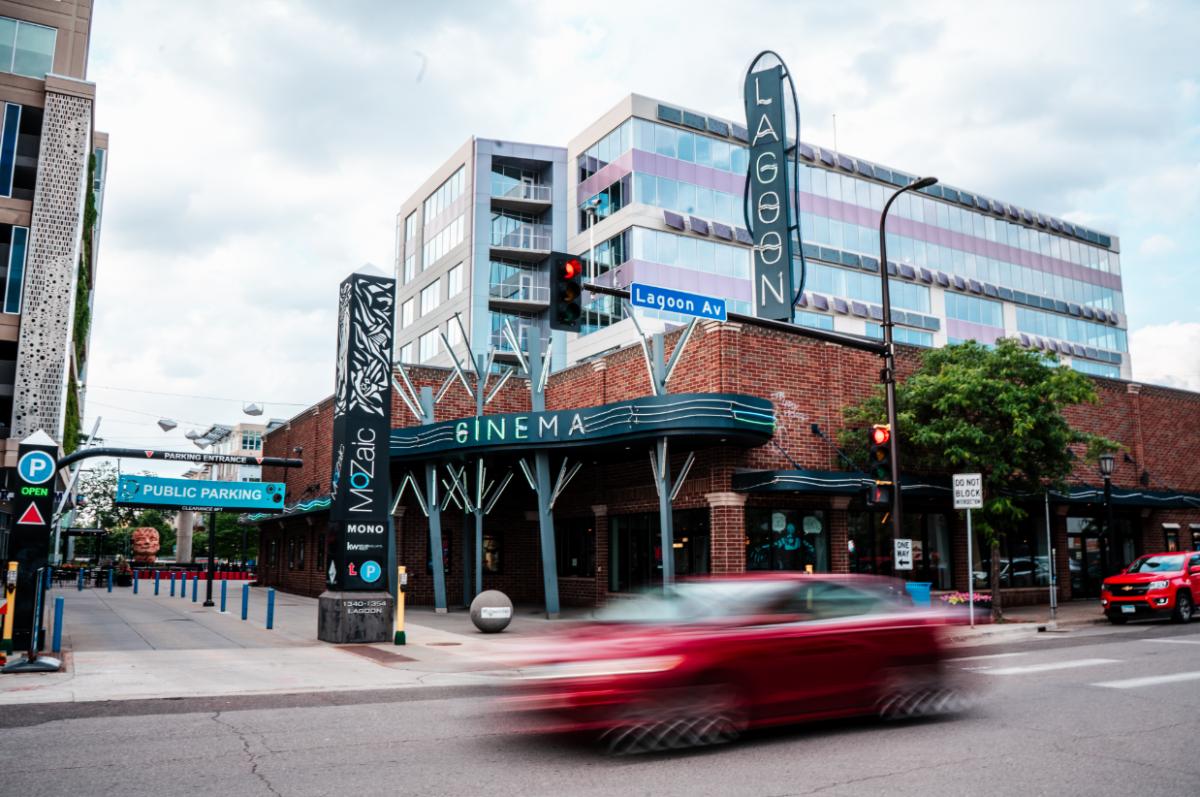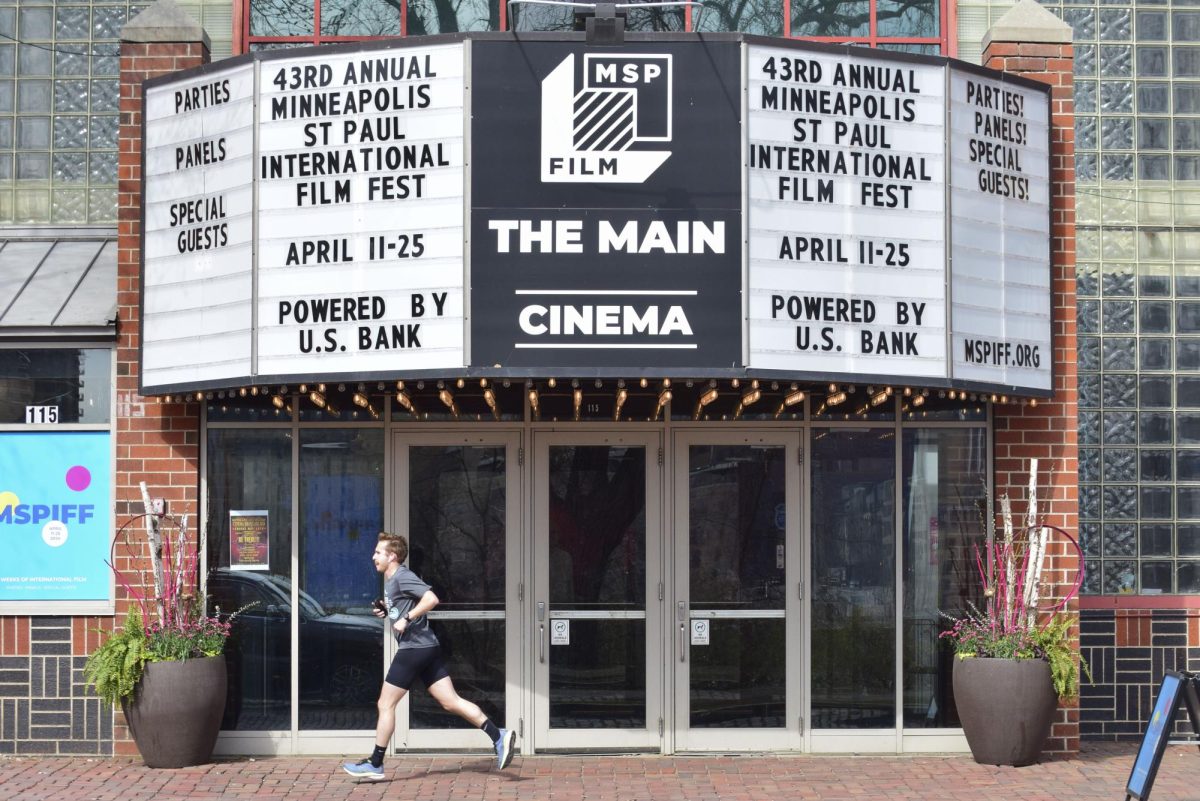Except for the occasional coup, carnival, labor disturbance or soccer championship, the culture of Latin American rarely impinges on the consciousness of media consumers here in the United States. Despite the diverse array of ecosystems, the massive conflicts, the wealth and grandeur and the crushing poverty they are built upon, Latin American issues and ideas are effectively hidden from our view. If the mainstream U.S. media cannot or will not investigate Latin America, then it is incumbent upon those who would broaden their view of this hemisphere to engage Latin American culture on their own.
The Walker Art Center’s current film series “Looking South” presents an exceptional opportunity for exactly this type of engagement. Drawing from the multiplicity of voices, the Walker has selected a group of films which express, in both their radiance and their divergence, the range of topics which might be considered Latin American.
Brazilian writer-director Helvecio Ratton takes us to the favela – the looming shantytown of Belo Horizonte, Brazil – and inspires us with the David and Goliath story of Radio Favela, a pirate radio station that grew to significance far beyond its creator’s wildest hopes. His film “Something in the Air” (“Uma onda no ar”) follows four young men from the slums who tire of poverty and despair and decide to engage in some direct action. Though the personal stories of the radio pirates fit a little too neatly into a standard Hollywood coming-of-age format, Ratton takes his characters where few U.S. films dare to tread. The youths turn their station into a powerful force for social change, enraging the police in the process. Even though they face harsh repression, the show goes on – every night at 7 p.m. – and they manage to work the system with enough finesse to persevere against the clampdown. Particularly amusing is the station creator Jorge (Alexandre Moreno) as he answers multiple calls from clueless U.N. officials who want to present the station with a prize. Ratton makes it clear that he shares his characters’ suspicion about the intervention by well-meaning foreigners. Radio Favela will keep broadcasting, the film asserts, not for official approbation, but to make a material change in the lives of the people who live and work in the favela. The Walker will take its own stab at direct action with a discussion preceding the screening of “Something in the Air.” The forum will be led by Misael dos Santos of Radio Favela along with local community radio workers Walter Q-Bear Banks of KMOJ and Janis Lane-Ewart of KFAI.
From Argentina comes something completely different – a subtle, even hesitant film about a young woman who comes of age not through social activism but by easing the lives of her aged grandmother and ex-con father. “Black Box” (“Caja negra”) gazes intimately into the life of Dorotea (Dolores Fonzi), a working-class Argentine teenager who works in a laundry and is the primary caregiver for her dying grandmother (Eugenia Bassi.) Upon her pathetic, stumblebum father’s (Eduardo Couget) release from prison, she slowly begins to integrate him back into her life and into society at large. Couget’s desperate physical appearance (he is disturbingly thin and shambles painfully around town) occasionally imbues the film with a surfeit of sentiment. On the other hand, both Dorotea and her grandmother are anything but female stereotypes. While there is some subtext dealing with Dorotea’s temporarily suspended sexuality, the film never plunges into the wantonly exploitative devices that are so common to the teen-movie genre here in the United States. Likewise, the grandmother’s occasional lapses into senility never detract from our perception of her character as a strong, independent woman with a rich life to consider from the perspective of her advanced years. “Black Box” achieves its intimacy without recourse to vulgar emotional set-pieces and cloying sentimentality, a rare feat in today’s reactionary family cinema.
Argentine documentarian Enrique Bellande focuses his attention on public spectacle rather than private attachments. His film “Mary’s City” (“Ciudad de Maria”) uses interviews and news footage to scrutinize the social phenomena surrounding the miraculous appearances of the Virgin Mary to a working-class housewife in the distressed steel town of San Nicolas. Bellande’s take is definitely distrustful of the veracity of the miracle. The unctuous parish priest who initially received Gladys Motta’s reports of contact with the Virgin Mary does little to dispel skepticism, especially when he proudly displays the new shrine being constructed with funds from pilgrims’ donations. Other residents of San Nicolas are defensive of their miracle, with frequent comparisons to the Virgin of Fatima and the Shrine at Lourdes popping up. Motta is apparently quite camera shy, and the pilgrims who surround her house on the 25th of each month (commemorating the initial appearance of the Virgin on Sept. 25, 1983) are quick to aggressively shout down any intruding reporters. Bellande makes much of the synchronicity of the visitations with the collapse of the local steel milling economy, visiting the tourist arcades and the factories that supply them with more than casual interest. Though he clearly wants to question the faith of the residents and pilgrims alike, Bellande is never overbearing with his criticism. His interest in Motta and her visions is firmly rooted in the traditions of a Catholic country.
These and other Latin American films should serve as a welcome antidote to the mind-numbing thrum of our hyper-commodified popular culture, even for those who have no special interest in the region or its people.
Niels Strandskov welcomes comments at [email protected]
















